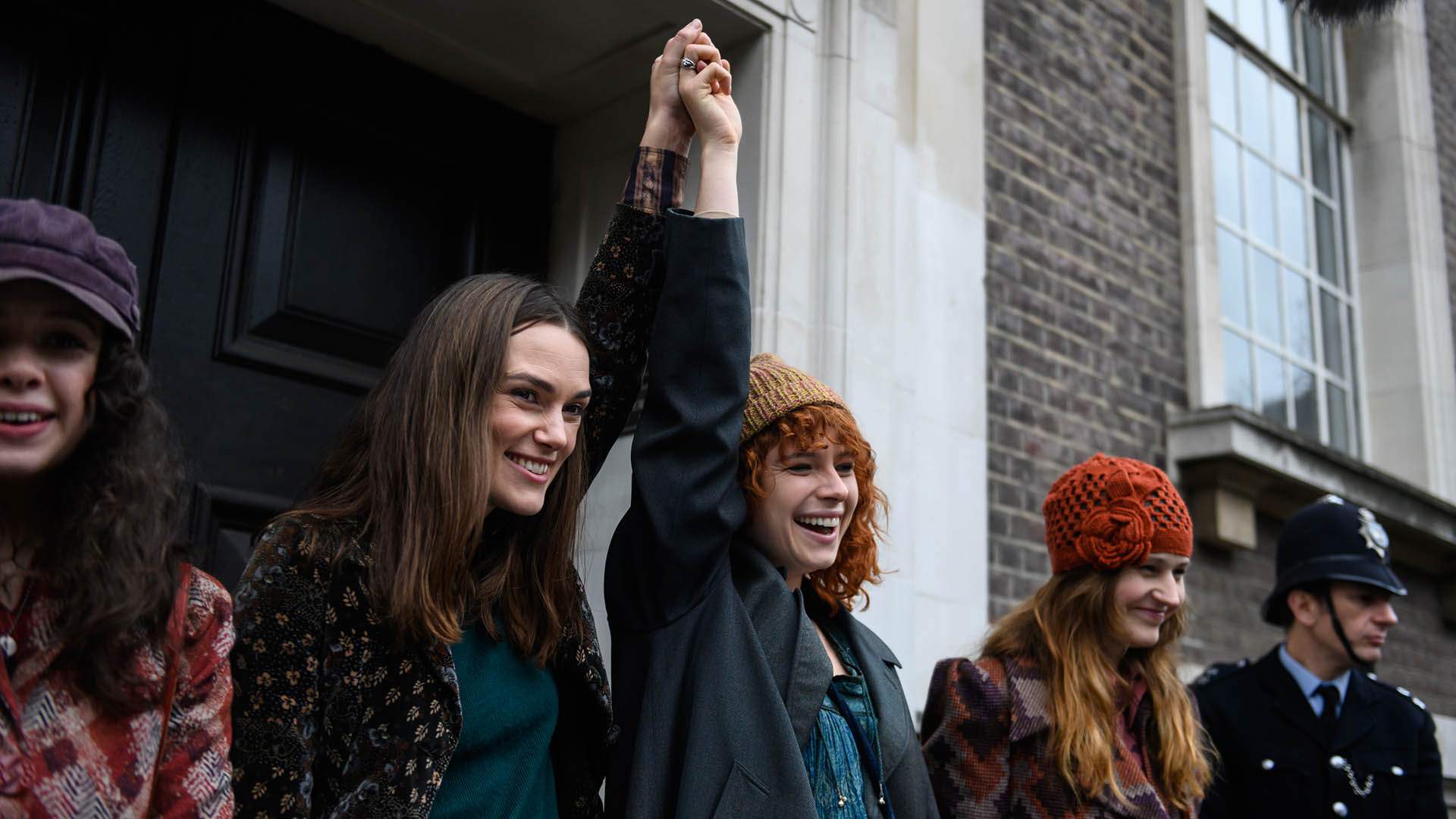Misbehaviour
Based on a true story, this spirited crowd-pleaser heads to the 1970 Miss World Pageant as it's targeted by women’s liberation movement protestors.
Overview
The fact that it took 50 years to bring Misbehaviour's true tale to the screen is nothing less than remarkable. Following the protests staged by the women's liberation movement at the 1970 Miss World Pageant in London, it harks back to a noteworthy and important chapter of history — so much so that you would've expected filmmakers to have been clamouring to give it the cinematic treatment. A plethora of compelling topics are baked into this story, after all, including calling out the gross sexism inherent in objectifying women and ascribing their worth according to their looks, questioning society's narrow view of beauty and making plain the racial prejudice that's also frequently in play. But you don't need a movie about all of the above to tell you the obvious, and also the probable reason that a film about this incident hasn't existed until now. Much may have changed in the past half-century, but the feminist quest for recognition, fairness and equality in every way isn't over yet. Indeed, it's galling how many of Misbehaviour's observations about the way women are treated — and how women of colour fare on top of that — continue to ring true in 2020.
Also rather telling: that, of the two big controversies that surrounded the pageant that year, this is the one that has finally reached movie-watching audiences. Again, Misbehaviour focuses on crucial events. It's a tale that should be told, about a battle that isn't over yet, and focusing on women who helped kickstart the progress that has been made over the last five decades. Still, the uproar that arose afterwards in response to the pageant's winner also speaks volumes. The result was questioned, for reasons this review won't give away even though it's a simple matter of record, and the extent of the narrow-minded attitudes cultivated and encouraged by such exercises in objectification couldn't have been more blatant. This film comes to a conclusion before then, however, simplifying what deserves to be a complex and multifaceted examination of the entire affair.
Audiences might've endured a hefty wait to see the 1970 situation get any big-screen attention, but they don't have to wonder why Misbehaviour favours the approach its does for very long. Director Philippa Lowthorpe (Swallows and Amazons) and screenwriters Rebecca Frayn (The Lady) and Gaby Chiappe (Their Finest) are eager to pay tribute to pioneering feminists, but they're also very keen to make a feel-good, cheer-inducing movie that fits a clear formula. So it is that a seemly mismatched group comes together, united by the shared goal of improving how women are regarded by society, and decides to target the giant, glitzy and televised spectacle that is the Miss World Pageant — which 100 million people will watch. The two main instigators, aspiring history academic Sally Alexander (Keira Knightley, Official Secrets) and graffiti-spraying anarchist Jo Robinson (Jessie Buckley, I'm Thinking of Ending Things), are initially worlds apart, but squaring off against a common enemy has a way of bringing people together.
Making a TV appearance after the protestors make their plans publicly known, Sally stresses one huge point: they're not rallying against the Miss World contestants themselves, but at the institution they're interacting with. Misbehaviour takes that view too, splitting its time — not in equal portions, though — between Sally, Jo and their pals, and also the women vying for the sash and crown. Jennifer Hosten (Gugu Mbatha-Raw, Farming), aka Miss Grenada, receives the lion's share of attention among the contenders. That said, Swedish favourite Maj Johansson (Clara Rosager, The Rain), US entrant Sandra Wolsfeld (Suki Waterhouse, The Broken Hearts Gallery) and 'Miss Africa South' Pearl Jansen (Loreece Harrison, Black Mirror) — a late addition after a journalist constantly questions why South Africa's competitor is always white — also get their moments. The film spends time with pageant founder Eric Morley (Rhys Ifans, Berlin Station) and the year's host Bob Hope (Greg Kinnear, Strange But True) as well, serving up two prime examples of the kinds of attitudes that Sally and Jo are trying to tackle.
The result is exactly the type of rousing, overt and easy movie that Lowthorpe and her colleagues set out to make — a film that ticks all the boxes it has placed on its own checklist, but doesn't do anything more. That makes Misbehaviour spirited, heavy-handed and well-intended in tandem, and also immensely straightforward. Anyone familiar with the likes of Calendar Girls, The Full Monty and Swimming with Men will able able to spot the template at work, for instance, even though the narrative specifics vary significantly. Misbehaviour has the same shine and energy, too, and the same crowd-pleasing nature. Its recognisable cast all do what's asked of them as well, as seen in Knightley and Buckley's fight against the patriarchy, Mbatha-Raw's quiet determination to give women of colour more prominence, Ifans and Kinnear playing the slimy villainous roles, and Keeley Hawes (Rebecca) and Lesley Manville (Maleficent: Mistress of Evil) as the latter pair's other halves.
In other words, being caught up in Misbehaviour's plot, purpose and impressively staged climax is almost a foregone conclusion. Being happy that it's hitting screens and telling this tale at all after all of these years is as well. But so is knowing that this is the most standard and clearcut rendering of this story possible — and noticing that, even as it completely avoids one big part of the pageant's aftermath, the film always keeps viewers well aware that there are other tales related to these events it could and definitely should be exploring and unpacking in more detail.





